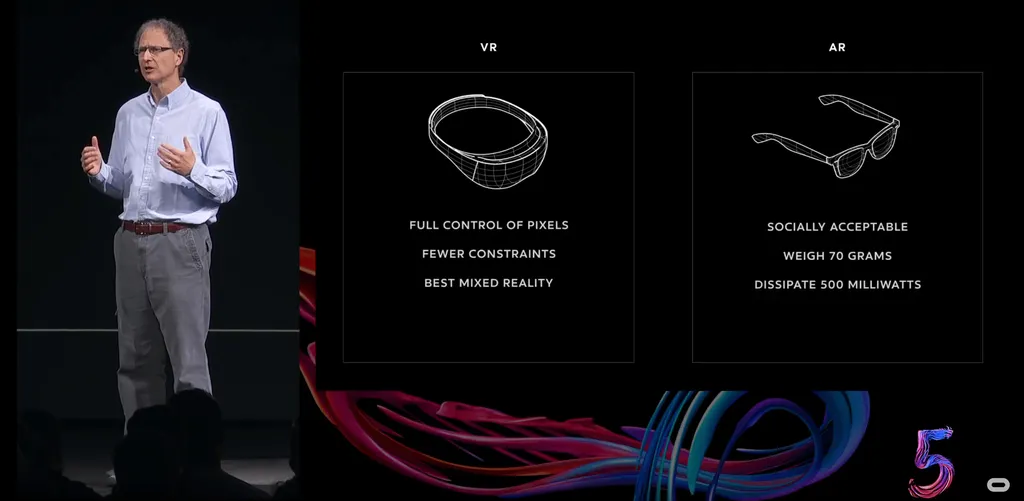Business Insider is reporting that a source has tried on a prototype of the AR glasses under development at Facebook. The source claims the prototype “resembled traditional glasses much more closely than the bulky AR headsets offered by Microsoft (the HoloLens) or Magic Leap.”
“They look like really high-end glasses,” the source said, adding “it’s light enough to not feel heavy on your face, and it wasn’t light enough to feel like you could just sit down and break them.”
A New AR Product Team
The report notes that “hundreds” of employees were moved from Facebook Reality Labs (formerly Oculus Research) to a new team focused on delivering AR products. The team is jointly lead by Michael Abrash and Andrew ‘Boz’ Bosworth. Abrash will continue to also lead Facebook Reality Labs as Chief Scientist.
Facebook told Business Insider the decision was made to move AR hardware development “out of research, now that we are closer to shipping”.
The publication’s source claimed that the release was pushed from 2020 to 2022, however Facebook denied this, stating “We have an exciting AR road map that includes multiple products, so your intel on release dates is wrong”.
It’s unclear whether the reference to “multiple” products means a tiered product lineup (like Go and Quest in the VR market) or simply successor products.
Facebook’s Past Comments
Since the acquisition of Oculus in 2014, Mark Zuckerberg has hinted at wanting to launch AR hardware in the far future.
In 2016 the CEO told The Verge that AR would “maybe” be where VR is in “5 or 10 years”, but confirmed that Oculus was researching VR.
Zuckerberg was more specific in a 2017 interview with Recode, stating:
“I think everyone would basically agree that we do not have the science or technology today to build the AR glasses that we want. We may in five years, or seven years, or something like that. But we’re not likely to be able to deliver the experience that we want right now.”
In October of last year Facebook’s Head of AR Fiscus Kirkpatrick directly confirmed the company was working on AR glasses in an interview with TechCrunch.
Oculus Connect 5
At Oculus Connect 5 in October of last year, Chief Scientist Michael Abrash gave a detailed presentation on his views of the future prospects of AR and VR. During this talk, Abrash revealed that Facebook’s investment in AR research had “ramped up a great deal” in the past two years.
Abrash stated that since no off the shelf display technology was good enough for AR, the company had to develop “a new display system”.
Abrash gave some specific details of what the company was targetting in terms of form factor- no more than 70 grams weight and dissappating no more than 500 milliwatts. For comparison, Magic Leap One weighs over 300 grams. Like Magic Leap, Abrash stated that the glasses would need to require a companion device for processing- “either a smartphone or puck”.


























